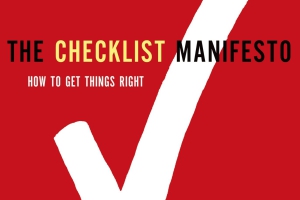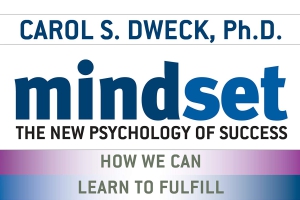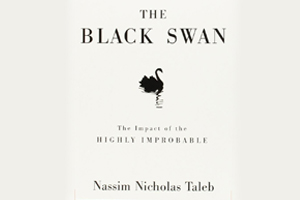Author: Kumiko Love
If you are someone who is frightened of looking in your wallet or checking your bank account balance, single mother Kumiko Love has some life lessons to take away your financial anxiety. When Love got divorced, she faced what appeared to be an insurmountable obstacle – USD 77,000 in debt and yearly earnings amounting to only USD 24,000.While other mothers managed to enjoy vacations and boast marvelous furniture in their houses, the single mom found herself struggling to make ends meet. And to make the situation worse, Love had a major fault – she binge-shopped when she was in a bad place, something that only added to her woes.
While being stuck in this self-destructive cycle that Love realised that it was not a lack of money which was making her life difficult – rather, it was her own crippling self-doubt, shame, and guilt. And this holds true for every one of you who is facing trouble managing their money. It is the financial and socioeconomic expectations that the society burdens you with that wreak havoc on your financial wellbeing and, getting out of it can only be done through a major shift in perception – instead of remaining stuck in the vortex, you need to become the solution to your troubles.
Love is now an accredited financial counselor boasting nine years of experience enabling women around the world reclaim control over their financial personas. The founder of The Budget Mom, a community of millions of women aiming towards financial wellness, Love has been featured in a bevy of top-tier media including Good Morning America, the Today show, CNN, CBS, ABC, and Huffington Post.
Key Takeaways
- Your anxiety regarding money does not necessarily revolve around money but society’s expectations on how and where you should be spending it
- You should learn to use your emotions to your financial advantage rather than allowing them control over your decisions
- When you create a budget, focus on your real life and its varied requirements, rather than a life mired in self-denial
- Work towards fostering a motivating debt pay-off plan capable of creating excitement, rather than fear, about your future
- List down the real priorities in your life, and work towards fulfilling them, instead of getting caught in the flow and considering everything important
- Start spending intentionally, rather than buying everything when you have money and avoiding necessary purchases when you end up squandering your earnings
- Focus on investing in yourself and building a life that you would actually love to live
For many individuals who are burdened by societal norms regarding money, their financial burden seeps into their emotional state, plaguing every moment of their days. With Love’s treatise, My Money, My Way, setting the tone, you will learn a lot of lessons that will stand you in good stead during your personal financial sojourn, providing you with the tools necessary to align your emotional health with your financial health while getting over a needless state of deprivation.
Understand what you are really anxious about
While everyone wishes for a fulfilling life which does not involve any financial struggle, you need to realize and accept the fact that such a utopia does not exist. Once you accept this reality, you will find yourself taking the first and possibly most imperative step towards living an abundant and happy life. During your journey towards financial wellness, you require more than mere numerical targets for motivation. If your sole focus is on the numbers, then falling behind on your goal for even a single month might lead you to give up. However, if your emphasis is on progressing towards a healthier version of yourself and cultivating a more meaningful life, then the significance of those numbers, whether large or small, diminishes. What truly matters is embracing change, fostering personal growth, taking action, and crafting a life that resonates with your passions. This journey is not solely about escaping debt – it involves delving into the reasons behind your financial challenges and formulating effective solutions. It is not just about learning to save but understanding the inner drivers that enable you to prioritize saving in your life. Rather than instant gratification, your journey is towards comprehending how to make informed choices that fund both your present and future aspirations.
Seek the answer to this question
While the sense of financial fulfillment varies from person to person, it is important to recognize what it signifies for you, personally. You must invest your efforts in uncovering the underlying motivations for earning and managing your money and visualise your goals – a crucial step that many individuals bypass unknowingly. They do not allocate sufficient time to introspect about their true motivations and skip straight to tactical financial strategies and spreadsheets and sadly, this shortcut often leads to financial setbacks because they fail to clarify the purpose of their financial pursuits. When you unearth your underlying motivations, you also unveil your life's purpose, embarking on a mission and charting a financial course. Rather than passively letting life unfold, you actively assess your current situation, define your aspirations, and strategize how to achieve them.
Assess your buying patterns
While it is true that money is meant to be spent on purchasing things that make you feel happy, your journey towards financial wellness must focus on identifying your spending patterns. Assess which kind of spender you are –
- The recycle spender: Do you make purchases and then end up feeling guilty about the money, only to go back and return the things you purchased? You have fallen into the guilt cycle and need to identify its source.
- The hoarder: Do you only accumulate money and never spend or invest it? You must start making your money work for you while using it to amplify your life.
- The compulsive buyer: Are you a shopaholic who tries to solve all your problems with shopping? You need to start identifying the core of the issue and work towards resolving it.
- The impulsive spender: Do you purchase things, even costly ones, without planning and budgeting for it? You need to exercise greater restraint.
- The magnify shopper: Do you spend money to make special moments more momentous? You need to assess why you feel the need to spend money to amplify such occasions.
Each of these spending patterns indicates an emotion that motivates your buying. While money is always tied to emotion, you must work towards controlling it.
Know your blind spots
The above assessment of your spending pattern enables you to arrive at your blind spots and thereby, avoid them efficiently. When you know your financial afflictions, it is easier to calm them and build a healthy relationship with money. Start by being honest with yourself and assess where you spend your money and why. Once you have these answers, you can start moving towards what you actually want in life. From taking better decisions to achieving your goals, the path becomes that much easier.
Arrive at your priorities
The most efficient way to advance toward a specific goal is to allocate all available surplus funds to that objective and this is also why most financial experts emphasise selecting a singular goal and adhering to it. For instance, a common recommendation is to prioritise debt elimination before saving for any other objectives, even retirement. Building a solid financial foundation entails not only learning how to save for a single goal but also mastering the art of addressing multiple financial objectives concurrently. The ability to effectively prioritise where your money goes represents one of the most crucial financial planning decisions you will ever make. You often deceive yourself into believing that spending money does not entail any trade-offs, that you can indulge in credit card purchases and still have funds left for dining out. However, the reality is that every expenditure entails sacrifices, even if you may be unaware of it. Typically, when you overlook the consequences, you are accruing more debt and compromising your future financial security, thus delaying important milestones such as homeownership, retirement planning, or even that dream vacation. To navigate this financial landscape effectively, start by:
- Compiling a comprehensive list of your potential priorities
- Reflecting on your most significant financial goals
- Considering what you are willing to forgo to achieve these objectives
- Segmenting these priorities by timeframes
By categorising your financial objectives and assessing their importance, you can make informed decisions about where to allocate your resources and work toward multiple goals simultaneously.
Design the life you wish to live
Embracing financial fulfillment brings about a profound transformation that extends beyond monetary gains. This journey reshapes your outlook and priorities, focusing on value in all aspects of life. Your spending choices become deliberate, centered on lasting quality and alignment with your life's vision. An insatiable thirst for knowledge emerges, making you more open and confident in your ability to learn and grow. You develop a keen awareness of future risks, meticulously planning for life changes and seizing newfound opportunities and this transformation fosters a long-term perspective, where you view every decision as a trade-off between the present and the future. Taking charge of your income and investments, you see yourself as the architect of your financial destiny, unbounded by a single job or employer. Furthermore, you develop a deep commitment to providing exceptional value to others, recognising that it is the path to personal and professional growth. In essence, true financial fulfillment catalyses personal and financial evolution, thereby propelling you towards creating a life that you will genuinely love living.
Once you begin to reverse and overcome your negative thinking patterns and stay away from societal norms and goals which do not make sense to you, your financial path to freedom will chart itself in absolute clarity. And Love is the best example of this ideology – from being a debt-riddled individual to someone who is now living in her dream home, completely debt-free, her decision to handle her money, her way, has paved the path to ultimate financial independence and wellness.
The most important thing that you must follow is a consistent goal-based approach to financial planning and well-being. Envision your future, imagine your dream car, your dream home, your dream vacation, etc. And then create a financial plan that can help you turn this into reality. Mutual funds, as an investment vehicle, can be an ideal partner for you on this journey. Mutual funds invest across asset classes like equity debt, gold, and even hybrid and deploy varying strategies that are designed to meet specific objectives. Due to the plethora of options available you can invest in mutual funds that meet your risk profile, can potentially generate the returns you desire, and are well-aligned with your long-term as well as short-term goals. To that extent, they can prove to be a one-stop-shop for your financial planning needs.
An investor education initiative by Edelweiss Mutual Fund.
All Mutual Fund Investors have to go through a onetime KYC process. Investor should deal only with Registered Mutual Fund (RMF). For more info on KYC, RMF and procedure to lodge/redress any complaints – please visit on https://www.edelweissmf.com/kyc-norms
MUTUAL FUND INVESTMENTS ARE SUBJECT TO MARKET RISKS, READ ALL SCHEME RELATED DOCUMENTS CAREFULLY.
Trending Books
MUTUAL FUND INVESTMENTS ARE SUBJECT TO MARKET RISKS, READ ALL SCHEME RELATED DOCUMENTS CAREFULLY.













